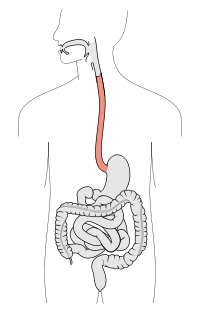
Photo from wikipedia
This review provides an approach for resolving a variety of feeding difficulties in children, ranging from normal eating behavior that is misperceived as a problem to substantial feeding disorders. Criteria… Click to show full abstract
This review provides an approach for resolving a variety of feeding difficulties in children, ranging from normal eating behavior that is misperceived as a problem to substantial feeding disorders. Criteria to identify pediatric feeding disorders have been thoroughly addressed in the newly established designations of avoidant restrictive food intake disorder (ARFID) and pediatric feeding disorder (PFD). These diagnostic criteria improve the accuracy of identifying, classifying, and managing significant feeding disorders in young children. While recent definitions of feeding difficulties are particularly appropriate in multidisciplinary settings, in this paper, we advocate for a progressive approach of managing feeding problems in all clinical settings. It begins by identifying red flags indicative of serious threats to the child, screening for oral motor dysfunction, stabilizing nutrient intake, and eliminating aversive feeding practices. The next step, if eating behavior does not improve, involves strategies that target specific eating behaviors and parental feeding styles. In severe or resistant cases, referral to specialists or interdisciplinary feeding teams is advised.
Journal Title: Current Gastroenterology Reports
Year Published: 2019
Link to full text (if available)
Share on Social Media: Sign Up to like & get
recommendations!